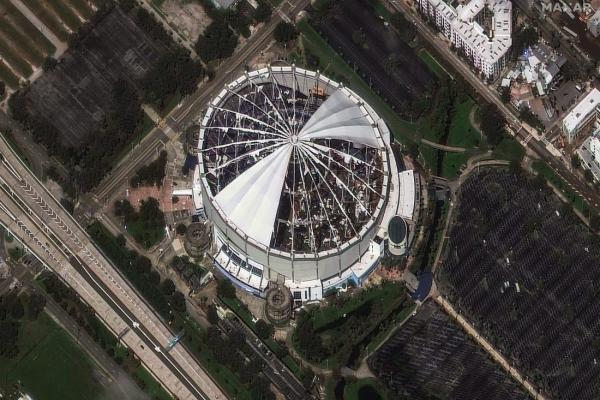A potential deal that would provide the Tampa Bay Rays a new $1.3 billion ballpark on the Tropicana Field site in St. Petersburg, Fla., is no longer a sure hit.
The Pinellas County Commission is scheduled to vote on $600 million of bonds for the project on Tuesday, but a vote postponed last month could be delayed again.
Rays owner Stuart Sternberg is seething from last month’s non-action he viewed as the commission breaking promises.
“Last month, the county commission upended our ballpark agreement by not approving their bonds, as they promised to do,” Sternberg told the Tampa Bay Times. “That action sent a clear message that we had lost the county as a partner.
“The future of baseball in Tampa Bay became less certain after that vote.”
Sternberg said that relocation “is not an unlikely conclusion.”
As structure, the proposal up for vote calls for the new ballpark to open in 2028 in the city’s Historic Gas Plant District. Any delay in construction would certainly raise the cost of the project.
Complicating the situation is that the area was damaged during Hurricane Milton, which struck the area on Oct. 9. The Category 3 hurricane ravaged Tropicana Field and tore off 18 of the 24 roof panels.
A report released by the city of St. Petersburg pinpoints stadium repairs at $55 million and $26 million alone for the roof replacement.
Next season, the Rays are scheduled to play at George Steinbrenner Field in Tampa, the spring-training site of the New York Yankees.
On the possibility of franchise relocation, the Tampa Bay Times cited a $25 million insurance policy for repairs. If the commission chooses not to pay beyond that price, the Rays would be free to pursue relocation as soon as 2026.
“We’re going to exhaust all that we can here until, and unless, it comes to that,” Sternberg told the Tampa Bay Times. “We’ve been in that sort of position before, in a sense, but without an expiring clock. An expiring clock that just exploded, basically.
“If we had 10 years, 12 years left, it’s a different conversation. If we had one year left, it’s probably a different conversation. If we had no plans to do a stadium here, it’s a different conversation.”
The 2025 season will mark the Rays’ 28th season on the West Coast of Florida.






